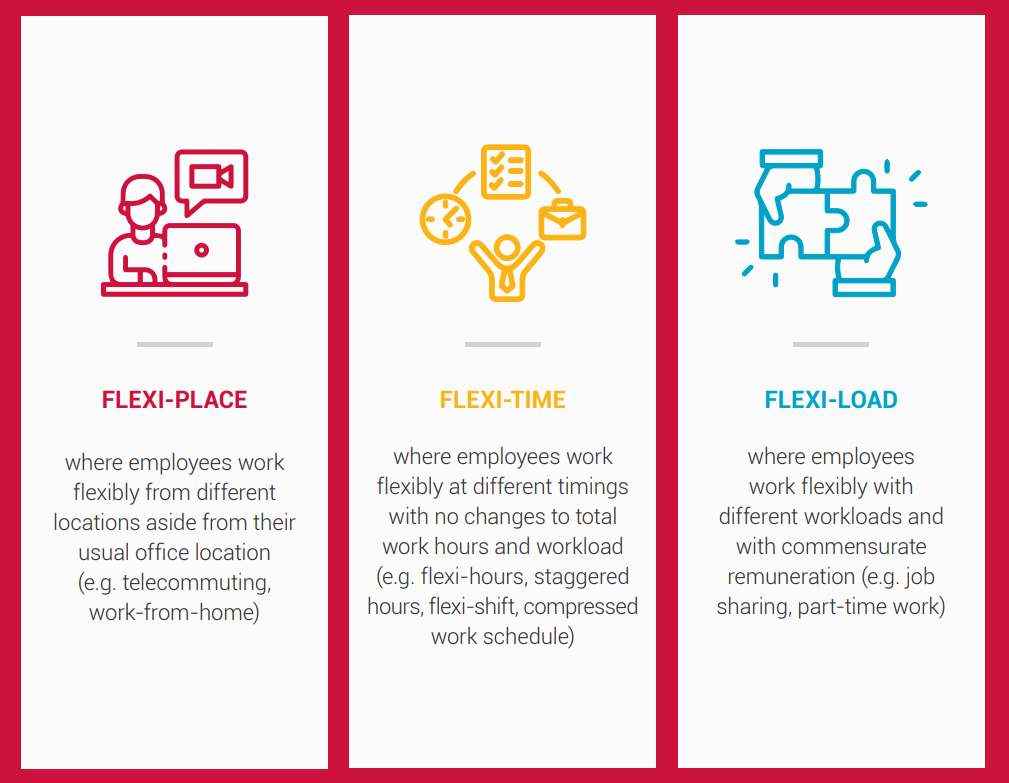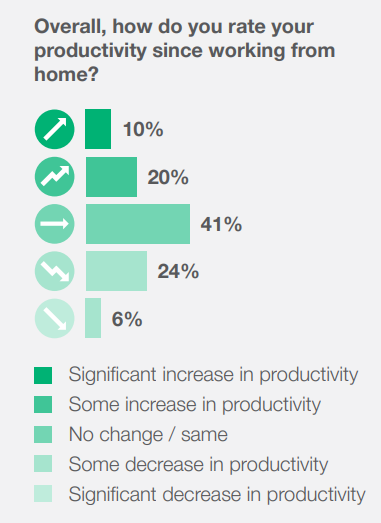The COVID-19 pandemic gave rise to several outcomes, one of which is the new norm of remote work.
Post-pandemic, hybrid work quickly rose in popularity. In this model, employees are only required to return to the office for a designated number of days, shying away from the age-old routine of going to the office for five days a week.
However, it has also created a discourse between employers, who were concerned about decreasing productivity and efficiency, and employees, who see the allure of being more flexible in their work.
It seems that the Singapore government is on the affirmative side of the debate, as they just announced the new tripartite guidelines that will allow employees to formally request flexible working arrangements (FWAs) from December this year.
Here’s why the new guidelines might create a win-win solution for both employers and employees.
A breakdown of the new rules
For starters, let’s do a quick recap of the guidelines and their objectives:

- Employees will be required to formally submit their requests in writing for an FWA
- Employers would have up to two months to consider and evaluate the viability of the arrangement.
- Both parties will need to reach a consensus on the different factors before implementation.
According to an announcement on MOM’s website, the guidelines will take an “educational approach” to help companies have a harmonious workplace culture that is based on trust and reciprocity.
The rules also aim to help employees request FWAs more easily while acknowledging employers’ rights to decide on work arrangements.
Singapore is one of the few countries after the United Kingdom and Australia to introduce a new policy on FWAs. It is also worth noting that earlier this year, Australia made worldwide headlines for passing a law that gives employees the right to ignore after-work office calls.
But, there’s always a catch
Can employees truly benefit from the policy, with the employer having the deciding power to accept or reject an FWA request?
For some remote staff, the flexibility comes at a price — one that they might not want to pay. According to a report by the Wall Street Journal, remote employees are 35 per cent more likely to be laid off by their companies.
Furthermore, in 2023, more than 3 per cent of remote jobs were cut than in-person roles.

They say that seeing is believing, and bosses are reported to be less likely to offer promotions to employees whom they can’t put a face to.
Several surveys and articles have pointed out conflicting views on job flexibility and setting expectations, which widens the gap between employers and their staff.
In a study conducted by Indeed, 83 per cent of the employers in Singapore believe that they provide enough flexibility, but only 61 per cent of employees agree.
A survey by Morgan McKinley also showed that 61 per cent of employers in Singapore have made it mandatory for employees to return to the office since the COVID-19 pandemic.
However, a whopping 89 per cent of employees prefer to work in a hybrid or fully remote model.
These findings not only show the difference in point of view (POVs) but also amplify the fact that many employers are not willing to let go of their “control” and “surveillance” over their employees.
The new guidelines also have the potential to increase competition within an already competitive job market.
In an interview with CNA, Tan Wan Ting, the founder of digital marketing agency Weave Asia, shared her worries that the FWAs will result in “messy” hours for her team, which will affect their reach and response time.
She also added that if FWAs have become the norm, she may have to consider hiring abroad where the manpower costs are lower. While she clarified that she considers hiring local talent if they have unique skill sets, she was concerned that it would no longer be the case.
“Why do I need to hire full-time staff now if there are flexi-work hours? Might as well I gather a pool of talent, I pay them by the hour,” she said.
Creating win-win solutions
However, the new guidelines do not aim to push employers to mandate FWAs like a 4-day work week immediately, as different cases have proven that it is not applicable to every company.
Rather, it focuses on providing an option for Singaporeans with unique living conditions. We need to remember that Singapore has an ageing population and that the number of caregivers in the country will only increase — a fact that the Singapore government has acknowledged.
It is our duty to create an environment that is supportive so that those people who want to work can continue to work, even while they are managing other family duties at home.
Minister Gan Siow Huang, Minister of State for Manpower in a dialogue
As of now, Singapore has more than 210,000 people who are caregivers.
From the employers’ perspective, having FWAs can increase their capability to retain talent. According to an article by HRM Asia, 62 per cent of employees are less likely to leave their jobs in 2024, as compared to those working fully remotely (51 per cent) and in-office (45 per cent).

Combined with the rise of caregiver burnout in the country, this is a sign that employers should do their part to assist employees in meeting their productivity metrics while still accounting for their mental health.
While the new guidelines are not a one-size-fits-all solution, they will create opportunities for both bosses and staff to collaborate and build trust with one another.
A win-win solution for both parties who are often at odds sounds like heaven to me!
Featured Image Credit: Capitaland

